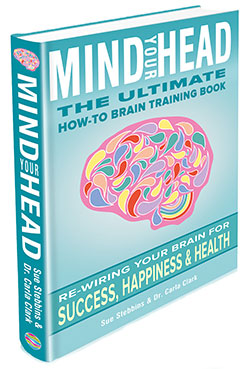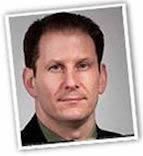Heidegger's Interpretation of Kant: Categories, Imagination, and Temporality
(MARTIN WEATHERSTON)
Reviewed by Robert Hanna
Page 3
Source: http://ndpr.nd.edu/review.cfm?id=1346
To the extent that Heidegger tries to show how logic, judgment, and conceptualization all presuppose practice, affect or emotion, and engaged intentional agency, or in other words to the extent that Heidegger tries to show how cognitive intentionality presupposes “care,” I think that Heidegger is both correct and also has gone philosophically somewhat beyond Kant. Moreover I think that Heidegger is correct that logic, judgment, truth, conceptual representation, science, and theoretical reason are shot through with normativity. Kant of course recognizes the intrinsic normativity of theoretical reason too--he holds that formal logic is the science of how weought to think, for example, and there are deep connections between Kant’s views on truth (as formal correspondence with the actual facts) and his views on truthfulness (as sincerity and the concern for accuracy)--but not as explicitly or as fully as Heidegger.
Nevertheless Heidegger--like Nietzsche, Dewey, and the later Wittgenstein--is engaged in a radically deflationary philosophical project. As Rorty has pointed out, this project is eliminativist without being reductive. But many things, properties, and facts that really and truly matter to creatures like us are trashed along the way. What happens in Heidegger’s existential phenomenology is that logic, judgment, conceptual thinking, truth-as-correspondence, science, and theoretical reason all lose their ontological, semantic, and epistemic integrity in the face of their corresponding existential-phenomenological foundations. In effect, the logos sinks without a trace into the Lebensphilosophie. In this respect, I think, Kant’s general notion of a “transcendental deduction” (i.e., a proof that some a priori representation Rhas “objective validity,” or empirical cognitive significance, by means of showing how R is presupposed by some other representation R* that has objective validity by assumption) is superior to Heidegger’s existential-phenomenological analytic, precisely because--whatever we might think about Kant’s idealism--a transcendental deduction at the very least fully preserves the ontological, semantic, and epistemic status of what it purports to explain.
Furthermore and perhaps even more importantly, Kant’s basic concern throughout the Critical philosophy with rationality, consistency, truthfulness, strict obligation, and universal moral principles is a fundamental corrective to and an appropriate constraint on Heidegger’s highly subjective or first-person-centered and in effect emotivist and anti-rationalist existential ethics. The sad and sometimes tragic fact is that living freely and authentically (and even more so, attempting to live freely and authentically) in the existential sense will not guarantee that you do the right thing. This is because it is quite possible to be authentic in the existential sense and deeply evil: witness Nietzsche’s imaginary Übermensch, and (50 years later, catastrophically in real life) the wannabe-authentic Nazi thug.
This is not however to say that the Heideggerian ethics of authenticity should be rejected out of hand. Indeed, Kant’s notion of an (imperfect) duty to develop one’s talents can be deepened if one reads it as the obligation for all rational human animals to seek authenticity in the face of their own inevitable deaths. More generally, the Kantian notion of autonomy as moral self-legislation, or willing in accordance with the Categorical Imperative, can also be deepened by the Heideggerian notion of authentic freedom. Kant is surely correct that the highest good for creatures like us is to will in accordance with the Categorical Imperative: but it also seems plausible to me that thecomplete good for creatures like us is to have a good will, plus happiness,plus authenticity.
Therefore at the end of the day I would want to say that Kant is the much greater philosopher of the two--and correspondingly, that the Critique of Pure Reason is a much greater book than Being and Time--precisely because Kant’s Critical philosophy or general theory of human cognition, human volition, and the limits and scope of human theoretical and practical reason, comes much closer to the truth about the nature of creatures like us than Heidegger’s existential phenomenology. Nevertheless, Heidegger’s tendentious interpretations of Kant do open up some otherwise latent and previously unexplored aspects of Kant’s Critical philosophy--and this has paid dividends in recent “continentally” inspired scholarly work on Kant by, for example, Béatrice Longuenesse and Wayne Waxman. It also remains true that some of Heidegger’s existential-phenomenological insights into the human condition significantly enrich Kant’s theories of cognition, volition, and reason. So by all means read Kant, read Heidegger, read Heidegger on Kant (and here you may also want to consult Weatherston’s useful book), then read Kant again. Then throw away your Heidegger and teach Kant to your students.
We Make it Easy to Succeed
Successwaves, Intl.
Brain Based Accelerated Success Audios
 |






